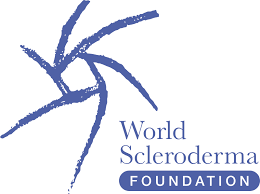Survey Description
This survey is designed to assess current practices, awareness, and attitudes among clinicians regarding the Very Early Diagnosis of Systemic Sclerosis (VEDOSS). It collects detailed insights from healthcare professionals involved in the care of patients at
risk for systemic sclerosis, with a particular focus on screening, monitoring, and early intervention strategies.
Main aims of the survey
• Assess clinician familiarity with VEDOSS criteria and early diagnostic indicators
• Identify current screening practices for organ involvement (lungs, heart, GIT) in asymptomatic and symptomatic VEDOSS patients.
• Explore use of diagnostic tools such as nailfold capillaroscopy, pulmonary function tests, HRCT, cardiac biomarkers, and GI assessments.
• Evaluate barriers to early detection and intervention, including access, guideline clarity, and resource limitations.
• Understand clinical decision-making, including when and why treatment is initiated, and which therapies are considered appropriate in the preclinical or early disease stages.
• Uncover variation in referral patterns and interdisciplinary collaboration (e.g., pulmonology, cardiology, gastroenterology).
Strength of applying survey findings in daily clinical practice
• Enhancing early diagnosis: Understanding real-world use of VEDOSS criteria can drive earlier identification of patients at risk, which is key to preventing irreversible disease- related manifestations.
• Improving standardization: By highlighting variability in clinical approaches, the findings can support the development of more consistent and evidence-based screening protocols.
• Guiding resource allocation: Identifying barriers (e.g., access to HRCT or NVC) helps inform health system planning and training priorities.
• Stimulating interdisciplinary collaboration: Insights into referral patterns can encourage more integrated care models across specialities.
• Informing future guidelines: Data can contribute to the refinement of international consensus on early systemic sclerosis management.
Who should participate.
Physicians and allied clinicians (e.g., rheumatology, internal medicine, pulmonology, cardiology, gastroenterology, dermatology) involved in the assessment or management of SSc/very-early SSc.
What it involves.
Approximately 35–40 short questions; completion time 10-15 minutes divided in 5 different sections.
Participation is voluntary and anonymous. No patient-identifiable data are collected. You may skip any question or exit at any time before submitting. Responses will be analysed in aggregate and reported without identifying individuals or institutions.
Data use.
Findings will be used to inform practice, education and may be shared in reports or publications. Data will be stored securely and retained only for the duration required by the study team’s policies.
Contact.
For questions about the survey, please contact:
Jelena Colic, MD, PhD (jcolicster@gmail.com) and Cristiana Sieiro Santos, MD, PhDc (Cristysieirosantos@gmail.com)
Consent.
By clicking Start, you confirm you are a healthcare professional aged ≥18 and you consent to anonymous participation.

